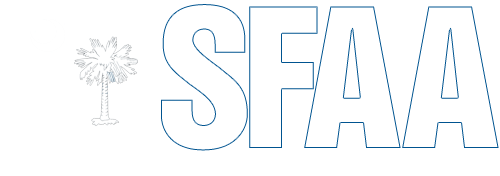Procurement Law Basics
Click here to access the Consolidated Procurement Code, the State's procurement regulations, an index of both, and a list of procurement exemptions.
Ethics Act & Public Contracts
The State's standard bidding instructions require that each offeror certify that it has and will comply with, and has not, and will not, induce a person to violate the ethics laws appearing in Title 8, Chapter 13 of the South Carolina Code of Laws. To access a complete copy of South Carolina's ethics statutes, click here.
For those involved in public contracts, the following sections require special attention:
Section 8-13-700, regarding use of official position for financial gain
Section 8-13-705, regarding gifts to influence action of public official
Section 8-13-720, regarding offering money for advice or assistance of public official
Sections 8-13-755 and 8-13-760, regarding restrictions on employment by former public official
Section 8-13-775, prohibiting public official with economic interests from acting on contracts
Section 8-13-790, regarding recovery of kickbacks
Section 8-13-1150, regarding statements to be filed by consultants
Section 8-13-1342, regarding restrictions on contributions by contractor to candidate who participated in awarding of contract
For a distinct but related rule regarding gifts to government agencies, please see Regulation 19-445.2165
FOIA Guides
Illegal Immigration & Public Contracts
An overview of how the South Carolina Illegal Immigration Reform Act effects public contracts is available at www.procurement.sc.gov/immigration
Protest Process Overview
The following attachments provide an overview of the protest procedures, including any hearings conducted as part of the administrative process.
- Introduction to Protests
- Panel Procedural Rules (Revised December 2012)
Protective Orders
Pursuant to Regulation 19-445.2200, outside attorneys for any party to a pending protest or contract controversy may request that the applicable Chief Procurement Officer (CPO) enter a protective order that would allow the inspection of material otherwise protected from disclosure by law. Requests should be sent to the CPO directly or to protest-itmo@itmo.sc.gov, protest-mmo@mmo.sc.gov, or protest-OSE@mmo.sc.gov, whichever is applicable. The CPO has discretion to approve or deny requests for a protective order and to tailor its scope. Applications from a party’s in-house counsel will not be approved.
If the CPO issues a protective order, outside attorneys, independent consultants engaged by the outside attorney, and the employees of both may apply to view the materials. Each individual must make a separate application. Applications must be submitted to the CPO who issued the protective order. A protective order will only be issued if an intent to protest, protest, or a contract controversy has already been filed and is still pending before the CPO.


